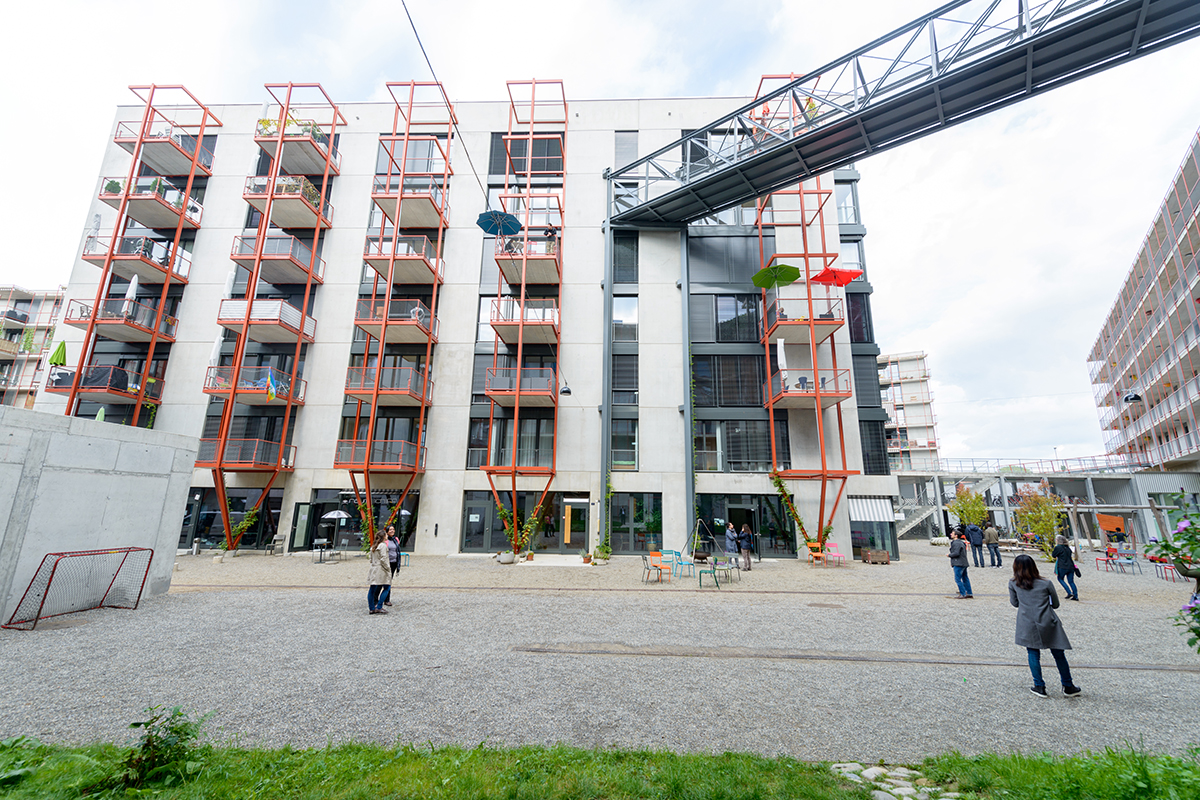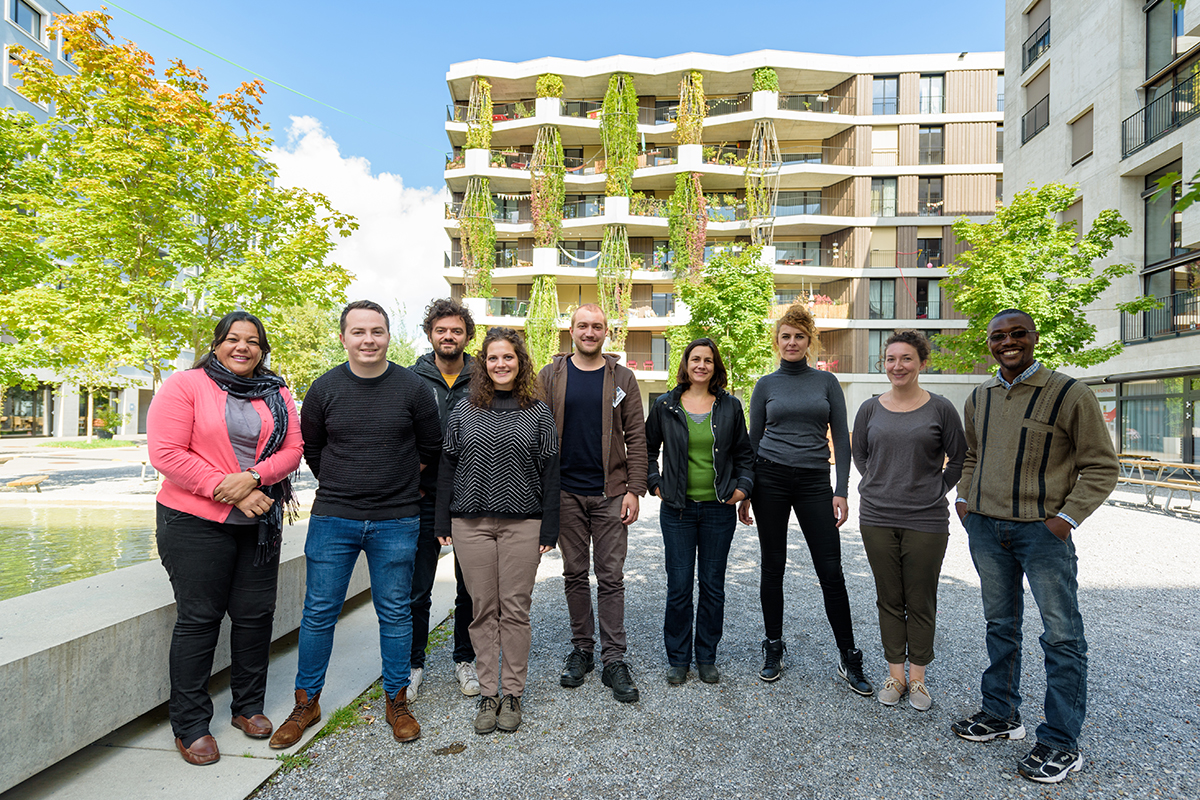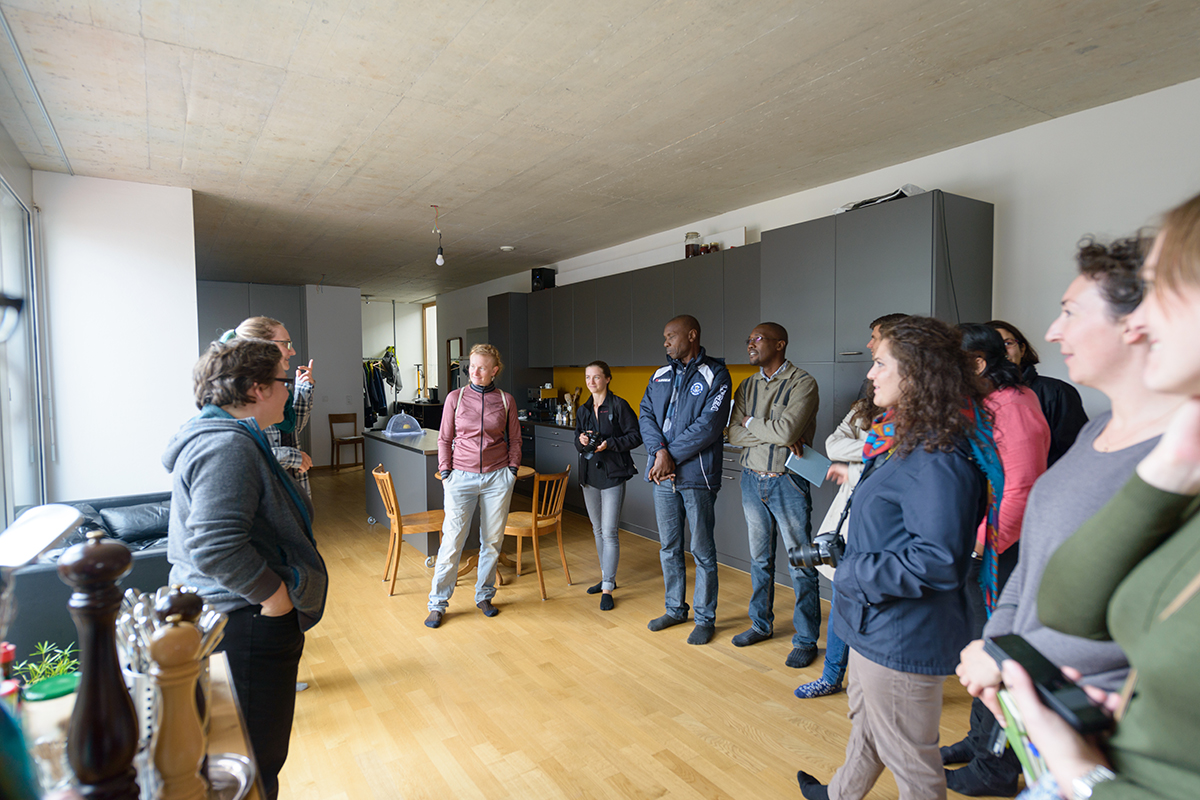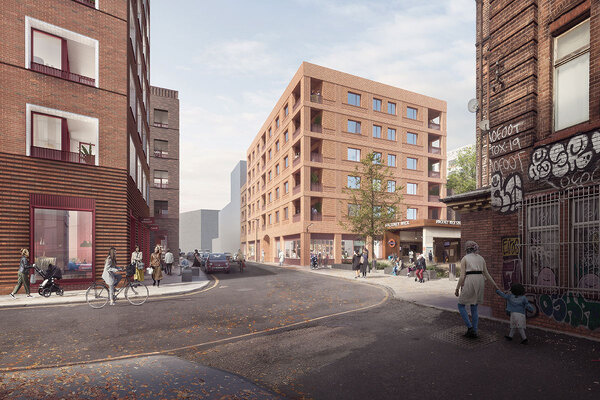Lessons from Zurich
Tom Way, innovation project manager at RHP, won Inside Housing’s competition with World Habitat to visit an award-winning development in Switzerland. He found a forward-thinking city that believes in quality affordable housing for all. Photography by Louis Rafael Rosenthal
How do we want to live in the future? This question is driving innovation and change around the world and, in September, I had the opportunity to travel from one hub of innovation to another: from RHP, the landlord I work for in London, to Mehr als Wohnen (More than Housing) in Zurich. I was fascinated and impressed by the city’s attitude to housing and the innovative designs created there.
The international peer exchange was organised by World Habitat (formerly the Building and Social Housing Foundation), a UK- based charity promoting innovative housing policy and practice around the world.
The week centred on Mehr als Wohnen – a 13-building, 1,400-resident co-operative community which formed a new quarter of Zurich on its completion in 2015. This award-winning development is architecturally impressive, incredibly well kept, and fosters a self-organised community which closely reflects the identity of the city.
I also had time to visit three other co-operatives around the city: Kalkbreite, Zwicky-Süd, and Kraftwerk (which, much to my dad’s disappointment, bears no reference to the 1980s techno scene). Each of the schemes has its own personality and unique story, which its residents are able to proficiently and enthusiastically reel off on demand.
What strikes me about each of these schemes is the ambition to create communities while still building homes at scale. The ground floor of all buildings in each of the co-operatives is reserved for businesses and spaces for communal use.
Each of the co-operatives has its own micro-government, which means the community is self-sufficient. Government for the people, of the people and by the people is alive and well in Zurich’s co-operatives.
The nine guests invited on World Habitat’s peer exchange
The inspiration for the More than Housing project was to celebrate the fact that co-operative and not-for-profit housing have provided more than just housing for 100 years and have “decisively shaped the character of the city”, according to the book about the scheme, More than Housing: Co-operative Planning – a Case Study in Zurich by Margrit Hugentobler, Andreas Hofer and Pia Simmendinger. In the book, Ms Hugentobler raises questions about the nature of the role of not-for-profit housing in the structure of a city and how a city would differ without it.
“A sense of community is built into the fabric of the complex.”
“Students, immigrants, older people and others on modest or average incomes would live in mostly privately owned, unrenovated, or less well-renovated old buildings or in developments… located on the city’s outskirts,” she wrote. “Zurich would be far less mixed, less lively, young, urbane, and attractive.”
The project culminated in what I saw: a self-sustaining, highly engaged community housed in good quality mixed-tenure accommodation within 15 minutes of the city centre, and a stone’s throw away from the University of Zurich and the headquarters of financial services company Credit Suisse and insurers Zurich.
A sense of community is built into the fabric, structure and layout of the complex, with its 13 residential buildings forming two enclosed public squares and streets where all ground floor space is dedicated to commercial and communal use.
These spaces include two restaurants, a communal kitchen and bar, a classroom, and two studios for art and music.
Damien Varesano of Urbamonde, Dimitra Siatitsa of INURA Athens and Jelly Moring of World Habitat
In 2011, the city of Zurich held a referendum. The vote resulted in a commitment to increase the proportion of not-for-profit housing to 33% by 2050. That’s 33% of all housing, not just newly built homes. It’s clear that public opinion, translated into a singular demand made at the referendum, is having a profound effect on the direction of government strategy.
The UK would benefit from a defining moment such as that which took place in Zurich in 2011, and it is not beyond possibility that not-for-profit housing would capture the imagination of Londoners, particularly given the narrative around high-value empty homes in desirable parts of the capital.
The narrative around housing in general is important, too. The UK’s legacy of popular support for affordable housing can be traced back to the post-War era and the 1949 Housing Act.
However, the term ‘affordable housing’ has been tainted by the question as to whether it’s actually affordable at all and, in turn, ‘social housing’ has been tainted by the narrative around the UK benefit system and immigration. Co-operative housing doesn’t have the same image problem, and ‘not-for-profit’ housing is a title that the housing sector may yet be able to get behind.
Tom Way of RHP
Other terms being used in Zurich that aren’t familiar in the UK include ‘rent help’ and ‘solidarity fund’ in place of ‘housing benefit’. These softer terms might be useful in addressing the sector’s – and its tenants’ – image problem while more accurately describing its purpose.
The political acceptance resulting from Switzerland’s record of housing provision has created a supportive environment in which the city of Zurich offers all public land to co-operatives before anyone else has the opportunity to bid. Co-operatives are also able to grow due to the city buying underused public land in order to offer it to them. As well as being owned by the co-operatives, many developments are built on a long-term land lease from the city.
Undoubtedly, more people in the UK are turning to shared housing because of the cost – and this is most prevalent in London. Organisations like RHP and Pocket Living have developed an alternative. RHP’s LaunchPod, for example, provides 26 square metres of space – including compartmentalised living and bedroom and bathroom spaces – designed to house a single person.
Despite the increased range of options developed for single occupation, it’s important to note that shared living is probably here to stay. Housing policy should therefore be designed to reflect the demand for this type of housing supply. It’s not sufficient for this large group to be reliant on the private market for housing.
The more innovative housing co-operatives found in Zurich – including Mehr als Wohnen, Kalkbreite and Zwicky-Süd – are high quality and present a viable alternative to private rented sector accommodation, with or without the governance structures in place at co-operatives.
This approach is beginning to get a foothold in the UK; one example is The Collective Old Oak, a modern co-operative in London which is setting a new standard for co-operative living for the millennial generation.
Participants hear about the Zwicky-Süd co-operative
My trip to Zurich left me feeling that there are two things we need to do as a sector and as a society.
First, the segments of society that are losing out in the current housing market need to expect better and demand more. I’ve been lucky enough to be close to RHP’s LaunchPod project and see the response it gets, particularly from people in shared living arrangements. By embedding an understanding of some of the more innovative approaches to housing provision for a wider audience, public opinion will drive change.
Second, as a sector it’s essential that we innovate with a view to shaping our own future. This means being bold in designing and deploying new and innovative housing solutions.
At RHP, we feel proud of our ongoing role in delivering modernisation. As well as driving our own innovation strategy and playing an active role in the National Housing Federation’s Futures Programme, we’re looking forward to L Marks’ second Evolve incubator programme, which will facilitate engagement between the sector and the tech and start-up communities.
In January, RHP will be hosting the second Innovation Forum, bringing organisations in housing together to share learning and experience from innovative projects.
The trip to Zurich widened my perspective of the potential for innovation in housing. All traditional approaches to housing provision and management are being challenged globally, making RHP and the
housing sector a really exciting place to be.
Earlier this year Mehr als Wohnen won the top prize at the World Habitat Awards, run by World Habitat (formerly the Building and Social Housing Foundation). Tom Way won a competition run by Inside Housing and World Habitat that offered the chance to visit the development.














